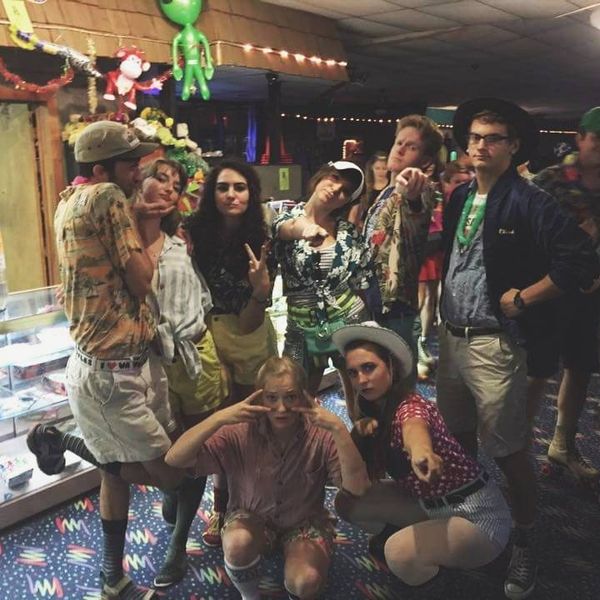At the end Junior year, I had become disenfranchised with the Wheaton brand of Christianity witnessed on-campus. By “Wheaton Christianity”, I mean implied social expectations and cultural blindspots justified under a conservative theological lens. Additionally, I heard so-called “Christian” outlets branding Doc Hawkins supporters as co-conspirators to dark powers, and the devastation of police brutality upon African-American men a conspiracy designed to divide America. While such a climate revitalized my Black heritage, I entered a period of practicing what I in retrospect call “Do-it-Yourself Theology”. Rooted in disillusionment, I saw God only as passive, affirming an theology disguised as empowering but meant to serve personal desires of revenge, self-verification, and stability for the future.
For many years, I had been labeled as “the other” when I was out in public. It didn’t matter if I wore a dress shirt with fashionable khakis, or a sports hoodie with dark jeans, many white neighbors would choose to avoid my presence. These experiences were most hurtful when I attended Christian-affiliated events, and rather than being warmly greeted, was treated cooly with stares of uncertainty. Sure, I had cultivated some callous responses and a gentle personality to deescalate racist perceptions, but it was never enough. The frustration of being frequently labeled a public safety threat by an affluent, white Christian community was jeopardising an already strained relationship with Wheaton, since I could neither change the amount of melanin on my skin nor the apparent social dynamics that dominated the community.
In response to this defeatism, I searched for an identity where I would be universally viewed as a positive contributor to the Wheaton community. Somehow I would baptize their perceptions of men who looked like, and no longer would we be falsely assumed as thugs but rather be immediately recognized for our gifts as future leaders. The problem with this drive, was that I was still asking myself to change; the current me wasn’t good enough. And trying to assimilate myself with a culture-a culture that would not fully accommodate me-meant that I was willing to throw away established theological practices in the name of personal, rather than theological independence. In other words, anything that sniffed of North American Evangelicalism was rejected simply because agents of North American Evangelicalism were not automatically going to give me equal social acceptance, to say, that of a white Born-Again Christian male. Besides, many had already done so much to profane the humanity of my brothers in the name of Jesus. How could I align myself with their hypocrisy? So God was quietly made weak and insufficient, and in the name of self-care, I organised a theology on my own terms, where I was the Saviour.
At this time, I firmly believe the African-American community in Wheaton is at a “sink-or-swim” situation. The pain caused by the Doc Hawkins event, coupled with gun violence affects our community deeply, forcing us as brothers and sisters to be strong at the risk of falling apart in disunity. For me, this means actively engaging (or should I say, actively lamenting?) with fellow African-Americans in the community to get in touch with my culture. While I had different experiences in being light-skinned and growing up in a suburban community, the simultaneous discrimination and isolation we all experience on-campus is a common bond which has brought me back in touch with my ethnic heritage. But this realisation of who I fully am has made me vulnerable to DIY theology. You see, it became too easy to justify the elimination of essential elements within Christianity, as they had been misused in a hateful manner. But the teachers of the faith, who I had tirelessly submitted too, had lost my trust with their silence on issues so relevant to my life. How could things be restored not just quickly, but justly?
I once had a prof in the Theology department remind me “not to abandon my theological roots” in my time at Wheaton. At first I thought it to be a reactionary statement, but over time, I have come to better understand what he had meant. Change, with obvious exceptions, is healthy in theology because it brings about new ideas that boost understanding about who God is. But the motivations, no matter how apparently pure, must always be questioned. I don’t envision myself returning to the larger Evangelical camp of thought, but I shouldn’t exploit my new theological framework to serve my own personal interests. Instead, I hope to appropriately share my perspectives with others, and fairly contribute to the Wheaton community. The way Wheaton brands Christianity is not for everyone, but that does not exempt someone like me from no longer being in need of the Father’s love.





















